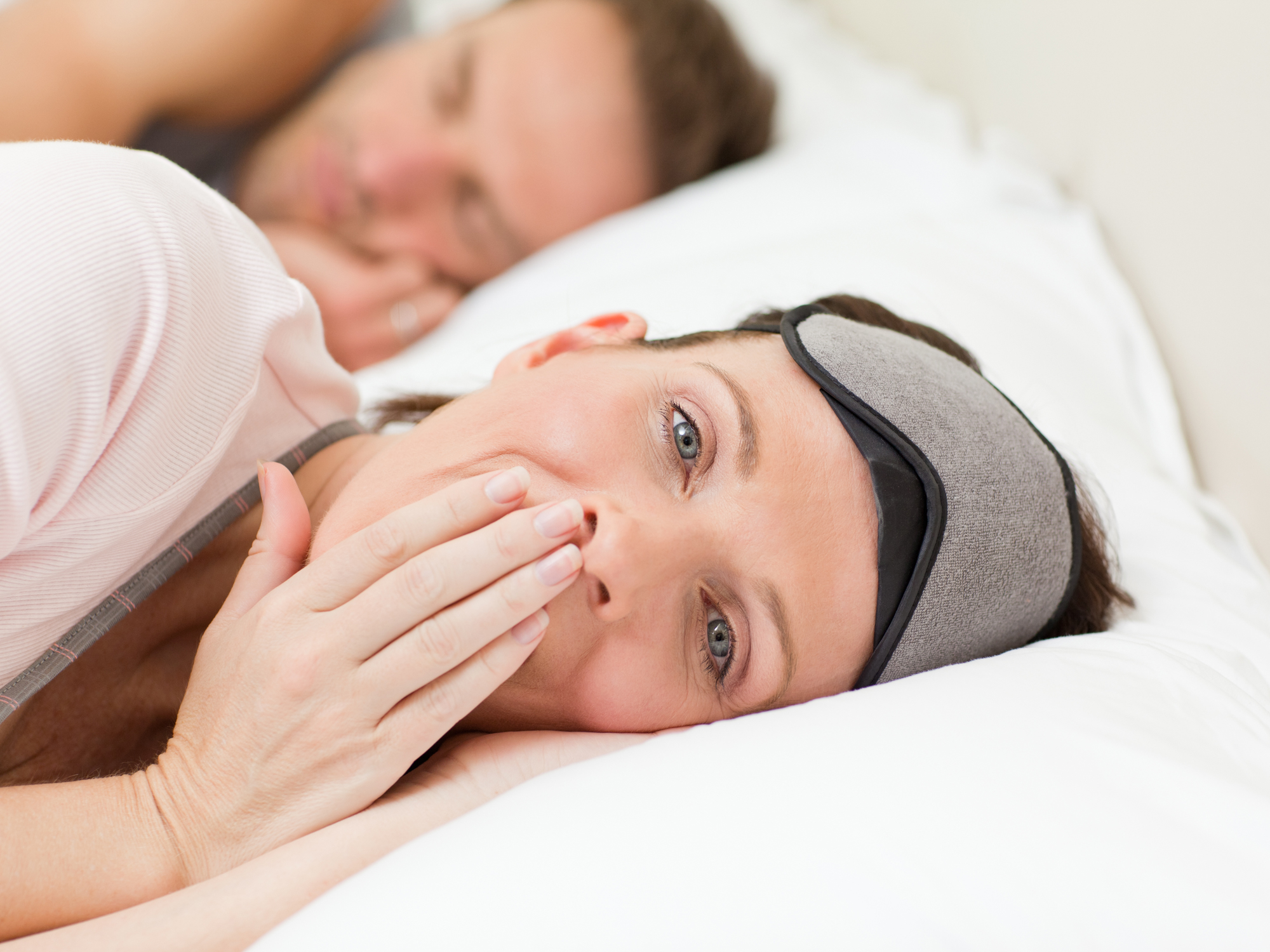Get Easy Health Digest™ in your inbox and don’t miss a thing when you subscribe today. Plus, get the free bonus report, Mother Nature’s Tips, Tricks and Remedies for Cholesterol, Blood Pressure & Blood Sugar as my way of saying welcome to the community!
The simplest secret to sleeping soundly

If you’re over 40 years old and having trouble getting enough sleep every night, there is a simple solution to your problem.
In fact, it’s so easy that many people ignore it.
Yet, it can help you fall asleep 20 minutes faster and sleep more deeply all night.
The answer is a sleep mask.
Believe it or not, a simple mask you put over your eyes at bedtime could be one of the most powerful tools in ensuring you get a good night’s rest.
That’s because research shows that sleeping in total darkness increases your body’s production of melatonin, a hormone vital to your sleep cycle.
Melatonin and light
You see, melatonin is produced in your brain, in a little organ known as your pineal gland.
But, your pineal gland can only make melatonin when it’s dark.
For most people, peak melatonin producing time is between 3:00 am and 5:00 am.
Melatonin controls your sleep cycle, lowering your body temperature and making you feel drowsy.
The problem is that light, even a small amount, can disrupt your melatonin production, especially as you age.
In fact, once you’re over 40, your brain becomes more sensitive to the light that switches off the production of melatonin by your pineal gland.
The light tells your brain it’s time to wake up and kickstarts processes that raise your body temperature and produce hormones responsible for energy.
Limiting your nighttime light exposure
Because light has such a negative impact on melatonin production, it’s vital to limit your nighttime exposure as much as possible.
Eliminating electronics and other sources of light in your bedroom, using blackout shades and changing your nightlights to red lights that have been shown to have less of an effect on melatonin levels are all good options.
But, one of the easiest things you can do is to use a sleep mask.
Studies show that using a sleep mask increases the quality of your sleep even under light or noisy conditions.
In fact, even under the simulated conditions of a hospital ICU unit, subjects who wore a sleep mask along with ear plugs fell asleep faster, slept better and woke refreshed.
This is great news since sleep masks are easy to find both in stores and online and quite inexpensive.
The better sleep plan
Based on the research, here’s a quick three-part strategy to help you sleep better, longer.
#1 – Use a sleep mask
Put your sleep mask on when you go to bed to block out any stray light. You’d be shocked how much that little sliver of light peeking under your bedroom door can impact your sleep!
#2 – Try earplugs
For some people, earplugs are too irritating but if you sleep in an area with a lot of ambient noise, you should consider using them.
#3 – Take melatonin
If a sleep mask and earplugs alone are not enough to overcome your sleep issues, try taking 1 mg of melatonin about 30 minutes before bedtime. Supplementing your body’s natural melatonin production can help you fall asleep faster and stay asleep longer. But if you take melatonin regularly, it’s a good idea to skip a night or two, so you don’t impact your body’s natural production.
So, if you’re ready for a good night’s sleep, try the three steps above to get the rest you’ve been waiting for.
Editor’s note: Regain your health and enjoy a full, vibrant life by defeating the real culprits of premature aging and sickness — excessive, damaging acid in your body! The truth is when you’re alkaline, wellness thrives and sickness takes a dive. Click here to discover The Alkaline Secret to Ultimate Vitality!
Sources:
-
Light-sensitive brain pathways and aging — Journal of Physiological Anthropology
-
Effects of earplugs and eye masks on nocturnal sleep, melatonin and cortisol in a simulated intensive care unit environment — Critical Care














